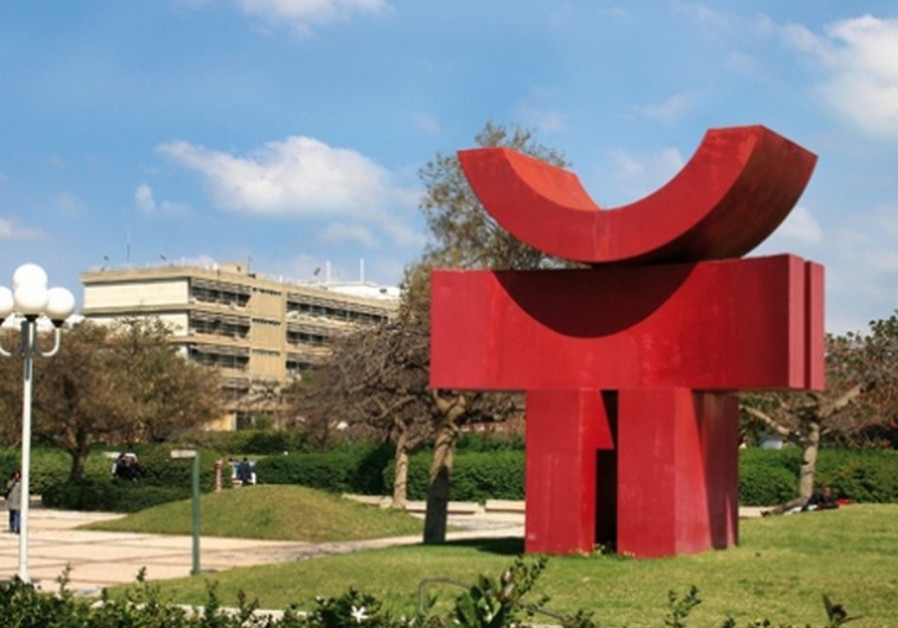Tel Aviv University in opioid firing line over Sackler donation

Tel Aviv University campus. (photo credit: PR)
Every day, an average of 130 Americans die from an opioid overdose, whether obtained by prescription or illicit means. The six-fold increase in opioid overdoses over the last two decades, the cause of death of almost 48,000 Americans in 2017, led the US Department of Health and Human Services to declare a public health emergency.
Several major pharmaceutical companies are now facing lawsuits filed by a total of 36 states concerning their alleged role in the deadly opioid overdose epidemic, suing them for deceptively marketing addictive opioid products for years. A further 14 states are said to be considering similar legal action.
At the heart of the litigation is Purdue Pharma, the multi-billion dollar drugmaker owned by the Sackler family, accused of fueling the overdose epidemic via the sale of its well-known opioid painkiller OxyContin. Johnson & Johnson and Israel’s Teva Pharmaceuticals are among those also facing legal action.
In 2007, Purdue paid $600 million in fines after pleading guilty to misbranding and misleading doctors and patients regarding the risk of addiction to OxyContin.
Prior to the Sacklers’ recent unwanted place in the legal and media spotlight, the Jewish multi-billionaire family was more closely associated with generous philanthropic contributions across the world than opioid addictions.
In recent decades, the family has proved to be a major benefactor for a wide range of cultural and educational institutions including New York’s Metropolitan Museum of Art, Guggenheim Museum and American Museum of Natural History, as well as Washington’s Smithsonian Institution, London’s Tate National Gallery, and Paris’s Louvre.
American universities Yale, Columbia, Cornell and Tufts are all past beneficiaries of the family’s fortune.
Israel’s own Tel Aviv University is home to the Sackler School of Medicine, founded in 1964 following contributions from Raymond, Mortimer and Arthur Sackler. It remains the country’s largest medical research and training complex.
As pressure grows on those behind the companies allegedly responsible for fostering the current opioid epidemic, pressure has also grown on the institutions benefiting from their contributions to distance themselves from their wealthy backers. Tel Aviv University is one of many in the protesters’ firing line.
Last week, Physicians for Human Rights Israel said it had sent a request to Tel Aviv University President Joseph Klafter and dean of the Sackler School of Medicine Prof. Ehud Grossman to remove the Sackler family’s name from the faculty.
Based in Tel Aviv, the nonprofit argued the name should be removed on the basis of “the inherent, acute clash between the sense of the medical calling that the faculty strives to imbue in its students, seeking to highlight the humanistic and ethical aspects of practicing medicine, and the conduct of members of the Sackler family as it emerges from publications and lawsuits filed against them in different US states.”
While Tel Aviv University has yet to issue a public response to the letter, a spokesperson told The Jerusalem Post: “The Sackler family donated to establish the medical school 50 years ago. The issue has yet to be resolved in the US courts.”
The US courts, however, took one small step closer to resolving the issue on Friday, when an Oklahoma judge rejected a motion to delay the state’s landmark trial against Purdue and two other drugmakers scheduled for May 28, vowing that “the wheels of justice at whatever speed you want to describe them will continue to turn unimpeded toward a jury trial.”
The outcome of the trial and whether institutions, including Tel Aviv University, will opt to drop the Sackler name from their faculties will only become clear with time.
Yale has already set a precedent of removing names over a different issue, announcing in 2017 that Calhoun College, named after slavery advocate John C. Calhoun, would be renamed, ending decades of debate over the honor.
Amid the looming lawsuits threat, Reuters reported last week that the Purdue is now evaluating filing for bankruptcy.
According to sources, filing for protection under Chapter 11 the United States Bankruptcy Code would enable the drugmaker to halt the lawsuits and negotiate with plaintiffs under the supervision of a bankruptcy judge.
Even without their holdings in Purdue, Bloomberg estimates that the family is worth a combined $13 billion.
Join Jerusalem Post Premium Plus now for just $5 and upgrade your experience with an ads-free website and exclusive content. Click here>>






Comments are closed.